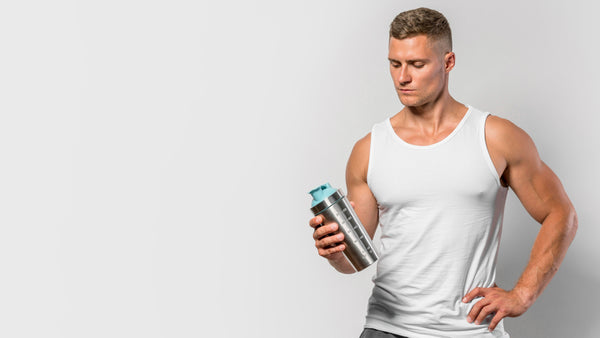Ever heard of the magic nutrient that can transform your hair, skin, and nails? Enter Biotin! This vitamin is much more than just a small word. Let's dive into the world of this vitamin, uncovering its wonders and why it’s all the rage.
What is Biotin?
Biotin, also known as vitamin B7 or vitamin H, is a water-soluble B vitamin. It plays a crucial role in helping the body convert food into energy. Without B7, our body would struggle to break down fats, carbohydrates, and proteins.
What are the benefits for hair, skin, and nails?
Biotin benefits are numerous, from hair to metabolism, it covers everything. Let’s explore some key health benefits of biotin.
Hair health
It is often hailed as the secret to luscious, healthy locks. It supports the production of keratin, a protein that makes up our hair, nails, and skin. This means stronger, shinier, and potentially faster-growing hair. People with biotin deficiency show typical symptoms of hair loss or red rashes.
Skin health
Biotin promotes the production of fatty acids, which nourish the skin and keep it hydrated and supple. This gives it a clearer, glowing look.
Nail strength
If you suffer from brittle nails, this could be your savior! It boosts keratin production, which gives structure to the nails, making them strong and less breakable.
Other health benefits of biotin
Apart from a beauty perspective, it has many other healthy benefits.
Metabolism support
It helps convert food into energy by boosting the digestion and metabolism of carbohydrates, fats, and proteins.
Blood sugar regulation
Along with chromium helps regulate blood sugar levels, making it beneficial for diabetes.
Fetal development
Pregnant women may become biotin deficient, which is harmful to the baby. To promote the baby’s health, a prenatal vitamin supplement with biotin and folic acid is essential.
Dosage and usage of biotin
So now that we know about the benefits, how much biotin is enough for a day? The recommended amount for adults is about 30 mcg per day, while for pregnant women is around 35 mcg. Supplements come in various forms such as capsules, gummies, and oral strips. These supplements are taken to prevent any biotin deficiencies.
Biotin-rich foods
Prefer to take it the natural way? Here are some of the natural sources of biotin.
Eggs: majorly the yolk
Nuts and seeds: almonds, walnuts, and sunflower seeds
Fish: salmon and sardine
Legumes: mostly soybean
Meat: majorly liver is the best source
Fruits: avocado and banana
Eating an adequate and balanced diet can help maintain levels in the body and prevent any biotin deficiencies. If a regular diet is inadequate, supplements are always to the rescue.
Who can take biotin?
Almost anyone can benefit from it, but is especially useful for:
Pregnant women: For fetal development
People with deficiency: Symptoms include hair loss, skin rashes, and brittle nails.
However, people who have allergies, are on medications or already consume a diet rich in biotin should practice caution.
Takeaways
This is a powerhouse vitamin with numerous health benefits. From supporting metabolism to enhancing hair, skin, and nail health, its role in our well-being is undeniable. Whether you choose to get from natural sources or supplements, ensuring you get enough is key to reaping its benefits. Always remember to consult with a healthcare professional before making any significant changes to your diet or supplement routine.
References:
https://lpi.oregonstate.edu/mic/vitamins/biotin

























